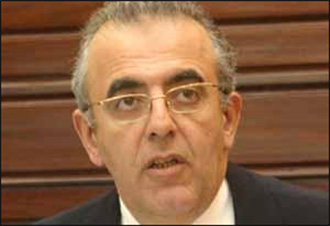Egypt’s Minister of Water Resources and Irrigation, Hani Sewilam, and Jordan’s Minister of Water and Irrigation, Raed Abu Saud, inaugurated on Monday the 38th meeting of the Islamic Network on Water Resources Development and Management (INWRDAM), held on the sidelines of the 8th Cairo Water Week (CWW).
During the session, a cooperation protocol was signed between Egypt’s Ministry of Water Resources and Irrigation and INWRDAM, represented by Aref Abdel-Mabde, Head of Egypt’s Nile Water Sector, and Marwan Al-Raggad, Executive Director of the network, which operates under the Organization of Islamic Cooperation (OIC).
In his opening remarks, Minister Sewilam welcomed his counterparts from Jordan, Iraq, and Syria, reaffirming Egypt’s role as a platform for Arab and Islamic cooperation in advancing sustainable development and integrated water management.
Sewilam commended INWRDAM’s contributions to strengthening capacity-building and knowledge exchange among member states to confront growing challenges of water scarcity and climate change. He noted that this year’s General Assembly meeting—held for the first time outside the network’s headquarters in Jordan—underscored its expanding regional influence.
Citing data from the Islamic World Educational, Scientific and Cultural Organization (ICESCO), Sewilam revealed that around 60% of OIC member states lie within arid or semi-arid zones, and 29 countries suffer from water stress, with 18 at critical levels. He pointed out that while the Arab world accounts for 6% of the global population, it possesses only 1% of renewable freshwater resources, and in several nations—such as Jordan, Qatar, Bahrain, and Kuwait—per capita water availability has dropped below 100 cubic metres per year.
Referring to World Bank estimates, Sewilam warned that if current management trends persist, the region could lose 6–14% of its GDP by 2050, far exceeding the global average, due to insufficient investment in water infrastructure and intensifying climate impacts.
He explained that agriculture consumes about 83% of total water use across the region, compared with a global average of 70%, underlining its centrality to food security. Despite the challenges, he highlighted regional progress, noting that Middle Eastern and North African countries now account for 50% of global desalination capacity and 40% of global wastewater reuse, signalling significant strides toward sustainability.
Sewilam called for the adoption of a shared regional vision and stronger cooperation among OIC member states, anchored in the Water-Energy-Food-Ecosystem (WEFE) Nexus approach, to achieve water and food security and enhance climate resilience.
He further advocated for expanding desalination powered by renewable energy, particularly for agriculture, and for introducing the “water footprint” concept to measure water use in production processes—helping policymakers prioritise efficient, high-value, and less water-intensive crops.
Concluding his remarks, Sewilam announced that the establishment of an INWRDAM regional office in Cairo represents a new milestone in Egypt’s partnership with the OIC. The office, he said, will serve as a hub for research cooperation, capacity building, and policy innovation to strengthen water resource management and climate adaptation across the Islamic world.



